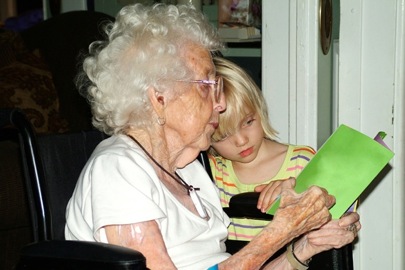Cancer Fatalism: Its Role in Preventative Behaviours

07 Aug 13 |
Cancer is still perceived as the Big C with all the scary and threatening trimmings. Cancer fatalism is “the belief that death is inevitable following a diagnosis of cancer”1. It appears that, despite progress in cancer treatments and prevention, fatalistic views prevail. Emerging evidence seems to suggest that there is an important relationship between fatalistic beliefs and cancer prevention:
- Older adults who report higher cancer fatalism are less likely to attend colorectal screening2.
- Fatalistic beliefs have also been associated with other types of lifestyle behaviours such as exercise and healthy eating3.
- Cancer fatalism also has a relationship with avoiding information on cancer1. This study suggests that those with negative views of cancer are more likely to avoid information, which denies them the opportunity to learn about the positive developments in the cancer domain; hence, pessimistic views of cancer are maintained.
- The socioeconomically deprived have stronger fatalistic views about cancer, less positive views about the value of early detection and are more fearful about seeking help for a suspicious symptom4. Therefore, fatalistic views may have a negative impact on early detection which may go some way to explaining inequalities in cancer survival.
In short, addressing fatalistic views of cancer may potentially have an important place in public health campaigns regarding cancer prevention efforts.
Gozde Ozakinci PhD
Lecturer in health psychology, University of St Andrews
- Miles, A., S. Voorwinden, et al. (2008). Psychologic predictors of cancer information avoidance among older adults: the role of cancer fear and fatalism. Cancer Epidemiol Biomarkers Prev 17(8): 1872-1879.
- Miles, A., S. Rainbow, et al. (2011). Cancer fatalism and poor self-rated health mediate the association between socioeconomic status and uptake of colorectal cancer screening in England. Cancer Epidemiol Biomarkers Prev 20(10): 2132-2140.
- Niederpeppe, J., Levy, AG. (2007). Fatalistic beliefs about cancer prevention and three prevention behaviors. Cancer Epidemiol Biomarkers Prev 16(10): 998-1003.
Beeken, R. J., A. E. Simon, et al. (2011). Cancer fatalism: deterring early presentation and increasing social inequalities? Cancer Epidemiol Biomarkers Prev 20(10): 2127-2131.
